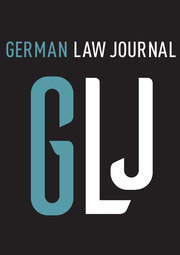The FIFA World Cup 2022 in Qatar is now well under way, yet
the relentless public debates around Qatar’s human rights record, be it regarding
the rights of LGBTQ+ or the rights of migrant workers who built the infrastructure
that underpin the competition, is not dying down. In fact, the whole build-up
towards the event has been defined by an intense public scrutiny of Qatar, with
civil society organizations and international labor unions engaging in continuous
advocacy to report on and improve the living and working conditions of migrant
workers active on Qatar’s many building sites. This issue also attracted
attention and critique from both the international media and public authorities
all around the globe. In fact, the question of Qatar’s (lack of) compliance with
internationally recognized human rights and core labor standards caused so much
negative publicity and external pressure that a number of legislative and
institutional reforms were initiated, officially aimed at improving the rights
and standing of migrant workers in Qatar. While it is highly disputed whether
these reforms have led to actual changes on the ground or should be seen only
as window-dressing, it remains clear that the global public attention brought
to Qatar by its hosting of the FIFA World Cup 2022 has forced the Qatari
authorities to engage legislative reforms and pay at least lip service to the
concerns raised.
In spite of the fact that this issue continues to play
a major role in the transnational public discourse, it received until now
relatively scant attention in the academic literature, specifically in the
international/transnational legal field. Yet, the debates around the Qatar 2022
World Cup are in practice mobilizing a range of legal arguments connected to
the interpretation and application of international human rights law and
international labor law, as well as activating international (at the ILO) or
transnational (at the Swiss OECD National Contact Point) legal processes.
Furthermore, they raise well-known questions regarding the compliance of states
with international legal commitments and connect with debates on the
universality of human rights and their translation in particular social contexts.
In short, we believe there is room for a multi-disciplinary engagement with the
legal processes and social mobilizations triggered by Qatar’s successful bid to
host the FIFA World Cup 2022 and their impacts on local social and legal rules
and institutions. Hence, Qatar’s journey towards the FIFA World Cup 2022 constitutes
an interesting case study to investigate more generally the transnational
social and legal mechanisms which underpin the concretization of international
(human rights/labor) law in a particular context and give it a specific reality.
We invite paper submissions from different
methodological backgrounds (e.g. law, anthropology, sociology, history, public
policy) which engage with the many entanglements of Qatar with international
(human rights and labor) law in the context of the organizing and hosting of the
FIFA World Cup 2022. The papers will be first discussed in a digital workshop
that will take place on 15 and 16
February 2023. Please note that we have an agreement with the German Law Journal (Open access journal on comparative,
European and international law published by Cambridge University Press) to
publish a selection of the papers.
If you wish to participate in the workshop and the
ensuing publications, please send an abstract of max. 300 words and a CV to
a.duval@asser.nl by 6 January 2023. The selected participants will be informed
by 9 January 2023. Extended abstracts (2000 words) will be due on 6 February
2023.
Supported by 